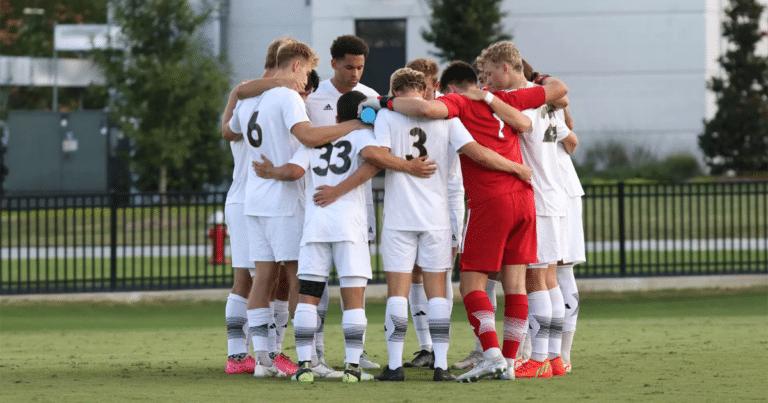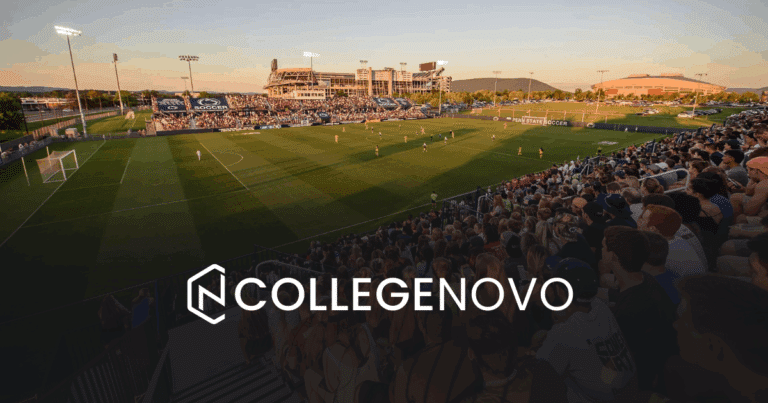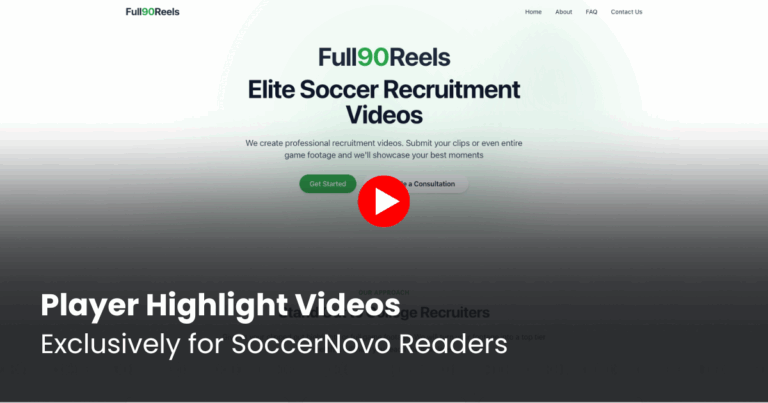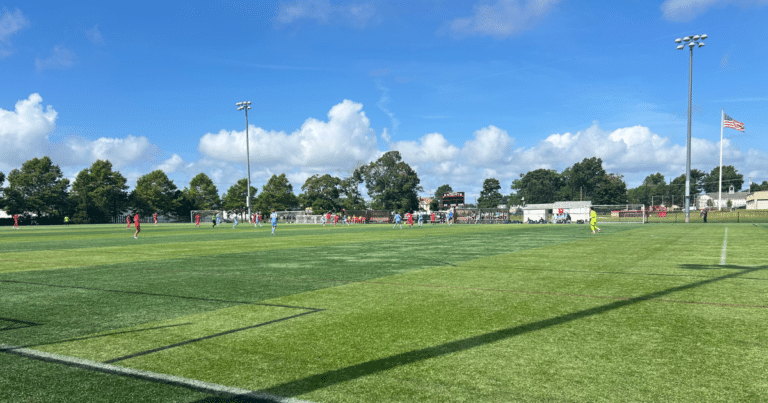Do You Have What It Takes for College Soccer?

Your college soccer dreams can come true with hard work, talent, and the right approach to getting noticed. But not everyone is college caliber. Let’s dig in…
- The top 1/3 club players from the top youth leagues (MLS NEXT, ECNL, Girls Academy) have the clearest path
- Consistent improvement and dedication matter more than your starting point
- Getting seen by the right coaches can change everything
Are You Ready for the Big Leagues of College Soccer?
If you love soccer and dream of playing in college, you might wonder if you’re good enough. The truth is, college soccer teams need players at many different skill levels.
From NCAA Division I powerhouses to smaller NAIA and junior college programs, there’s likely a place for dedicated players with talent and a high work rate.
At the end of the day, you are an investment. Coaches want to invest in players who will provide value and an impact for multiple years. Is this you?
The Fast Track: Elite Club Experience
If you’re a standout U17-U19 player on an MLS NEXT, ECNL, or Girls Academy team, you’re probably already on the radar of many college coaches. The truth is, these leagues are where coaches look first when recruiting.
“Being a starter on a top-tier club team puts you in a great position,” says Ryan Matthews, a former college soccer coach. “Coaches trust these leagues because the competition level is consistently high.”
Players in these top leagues who regularly contribute to their team’s success can often find spots at competitive Division I programs.
If you score goals, make big plays, or show exceptional technical abilities in these environments, you’re likely good enough for college soccer.
Hope for Everyone Else: Development Matters
Not on an elite club team? Don’t worry! College coaches look for players who show growth and potential, not just those from name-brand clubs.
Jason Weber started on his high school JV team as a freshman but worked his way to becoming an all-conference player by his junior year. His performance for his high school in the fall and club in the spring caught the attention of several Division II schools.
“I wasn’t the best player at 15, but I worked harder than anyone else,” Weber explains. “Coaches noticed how much I improved each year, which mattered more than where I started.”
Numbers That Matter: Stats and Metrics
College coaches love data. Here are some benchmarks that might indicate you’re ready for college soccer:
- Speed: Can you run a mile in under 6 minutes?
- Strength: Are you able to complete a full fitness training session without fatigue?
- Skills: Can you consistently complete 90% of your passes in games?
- Game IQ: Do you understand positional play and tactical adjustments?
Of course, this is not so cut and dry, but keeping these figures in mind can give you a benchmark to strive for.
What matters most, though? Your play on the field. Game IQ and seeing plays before they happen is a huge plus. Being able to turn and lead off a pass to start a counterattack can separate you. Making clean, hard tackles can give you an edge. These things matter.
Getting Seen: Exposure is Everything
Even great players need exposure. Attend ID camps hosted by colleges you’re interested in. These camps put you directly in front of the coaches who make recruiting decisions.
Emma Jackson was playing for a small club in rural Ohio when she attended three university ID camps in one summer. Her performance at these camps led to conversations with coaches who hadn’t previously known about her.
“Those camps changed everything for me,” Jackson says. “One coach told me he would never have found me otherwise.”
The Right Fit: Finding Your Level
College soccer has many levels. Be honest about where you might fit:
- NCAA Division I: Highly competitive, often requires elite club experience
- NCAA Division II: Strong competition with more opportunities for developing players
- NCAA Division III: Competitive but balanced with academics, no athletic scholarships but merit can offset costs
- NAIA: Flexible eligibility rules, strong competition, scholarship opportunities
- Junior College: Great for development, chance to transfer to four-year schools
Taking Action: Next Steps
If you want to play college soccer:
- Record your games and create a 4-5 min. highlight video
- Reach out to coaches with your soccer resume and video
- Attend ID camps at schools that interest you
- Keep improving your skills and fitness
- Research schools that match your academic and athletic abilities
The Truth About Recruiting
Although on-field skills matter a lot, they also want players who:
- Show leadership on and off the field
- Maintain good grades (academic eligibility matters!)
- Demonstrate coachability and positive attitudes
- Bring something unique to their program
Final Thoughts: Believe in Your Journey
Soccer players develop at different rates. Some bloom early, others later. What matters most is your dedication to improvement and your willingness to find the right college program for your abilities.
As Coach Matthews says, “The player who improves the most between 16 and 18 often has a better college career than the one who was better at 15 but plateaued.”
I 100% agree with that 👆
With hard work, strategic exposure to college coaches, and a realistic understanding of your abilities, you can find a college soccer program where you’ll thrive both athletically and academically.

Written By: SoccerNovo
SoccerNovo is an independent youth soccer media brand built to help parents, players, and coaches better understand the game and the pathways available in U.S. soccer. Our mission is to make youth soccer simpler, clearer, and more accessible for everyone involved in it.
Let’s connect






